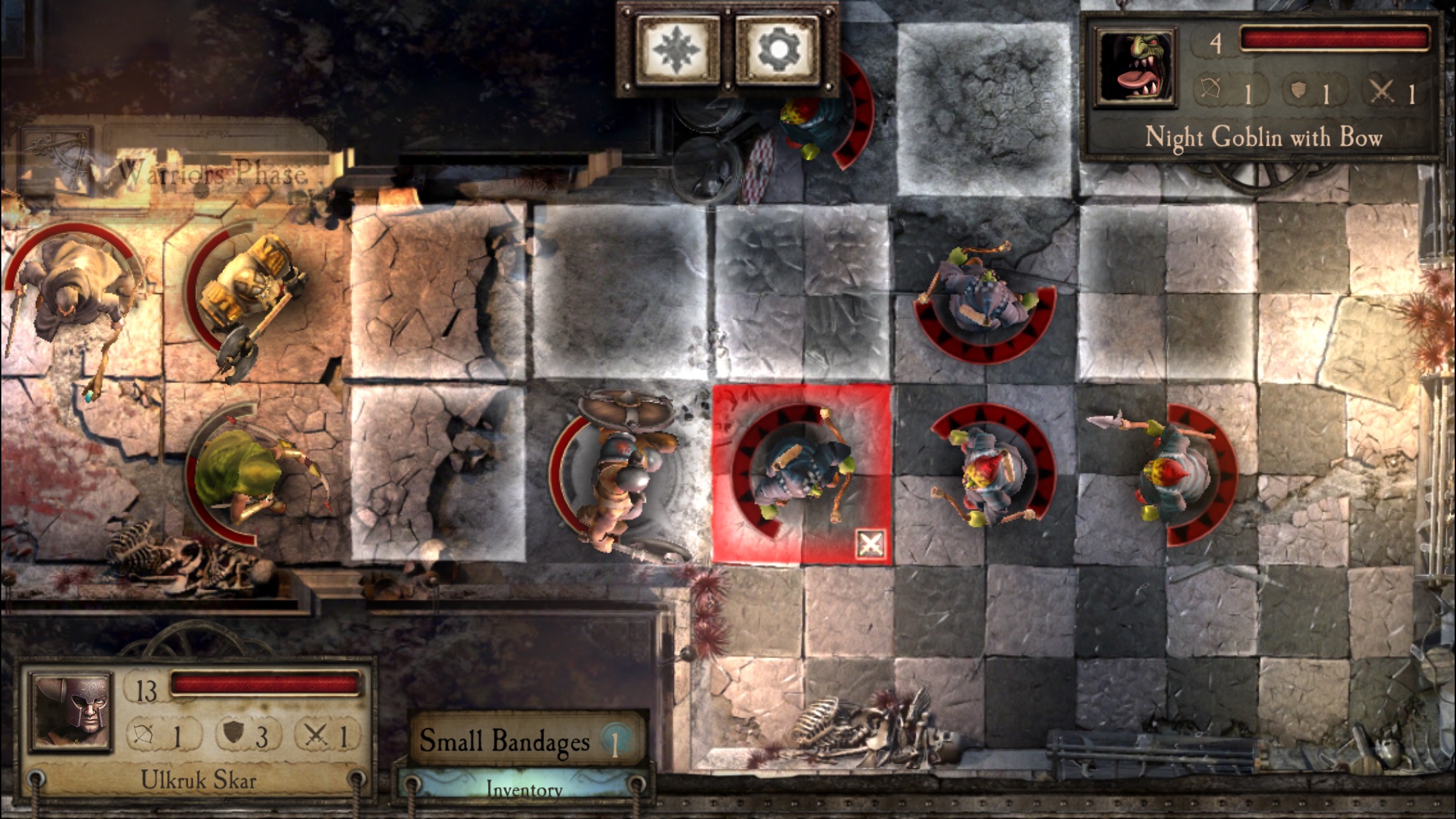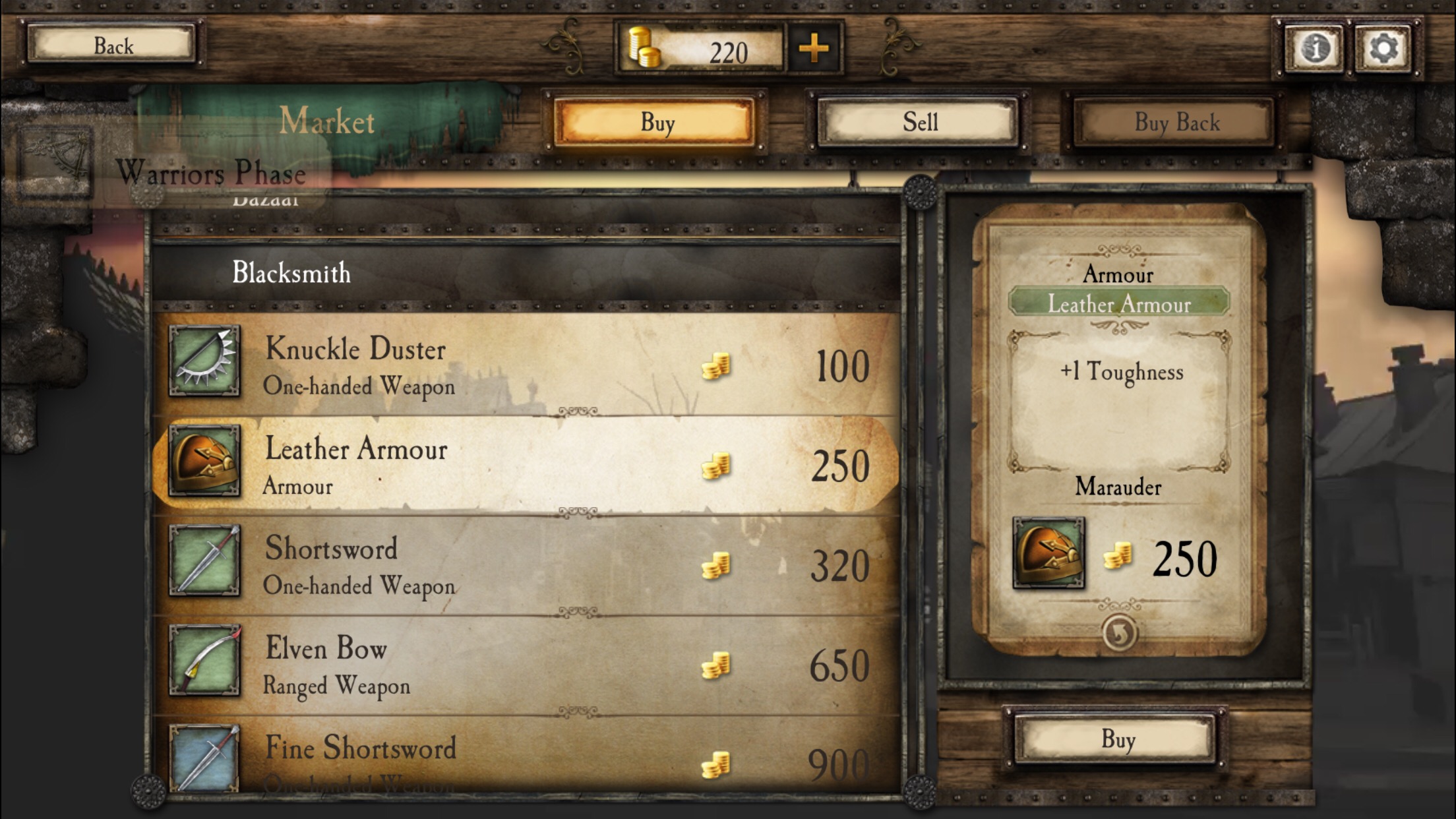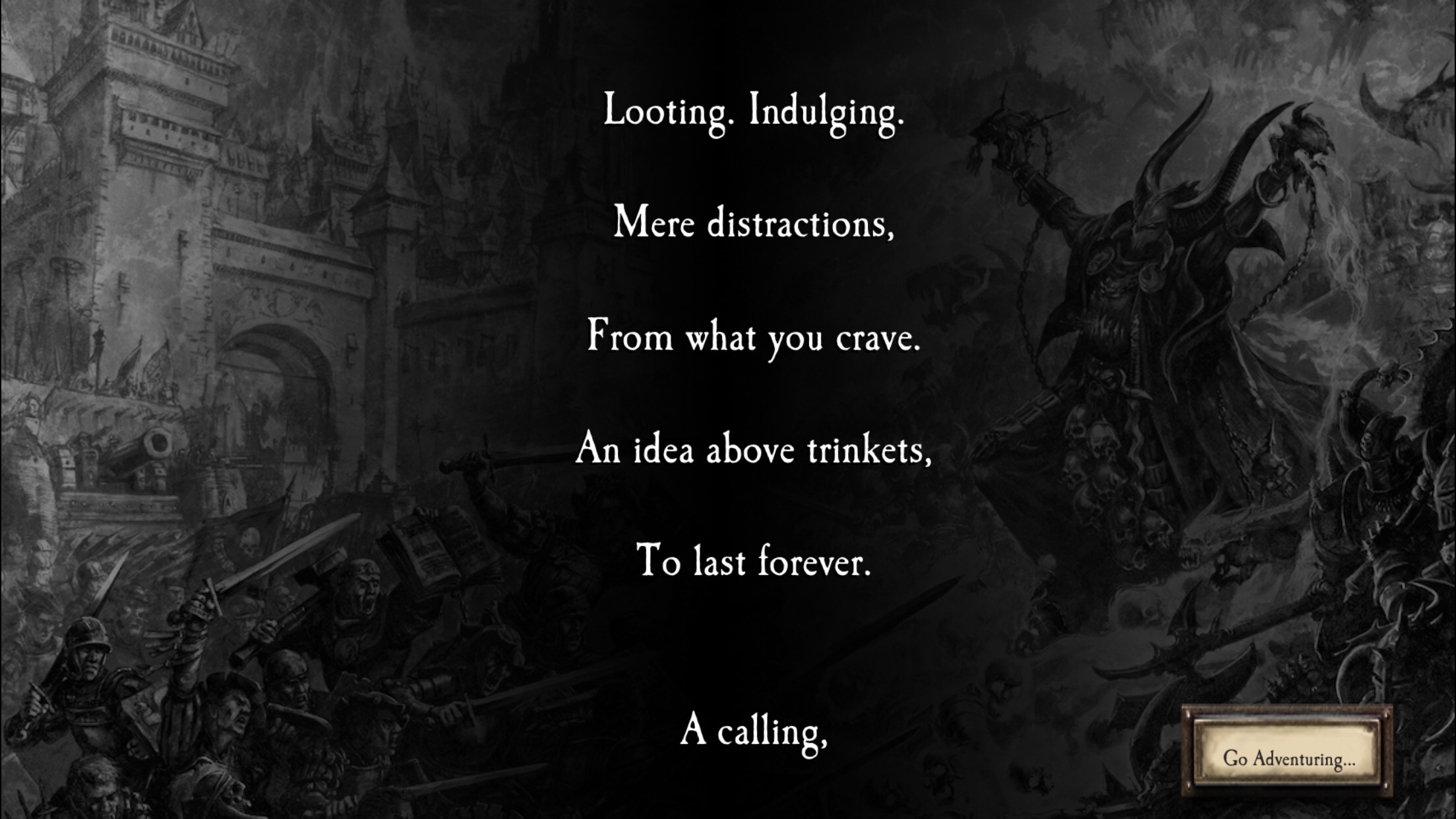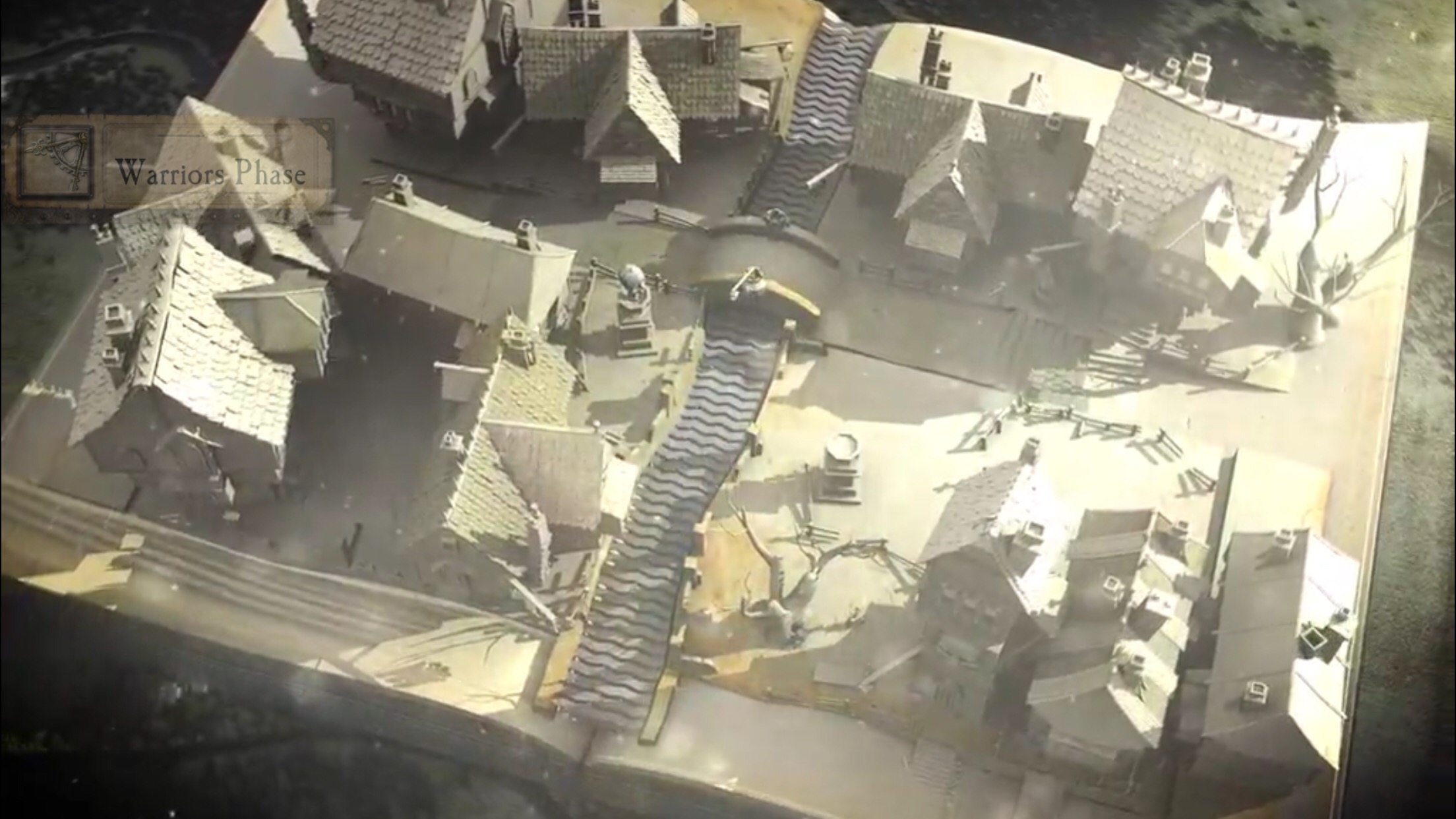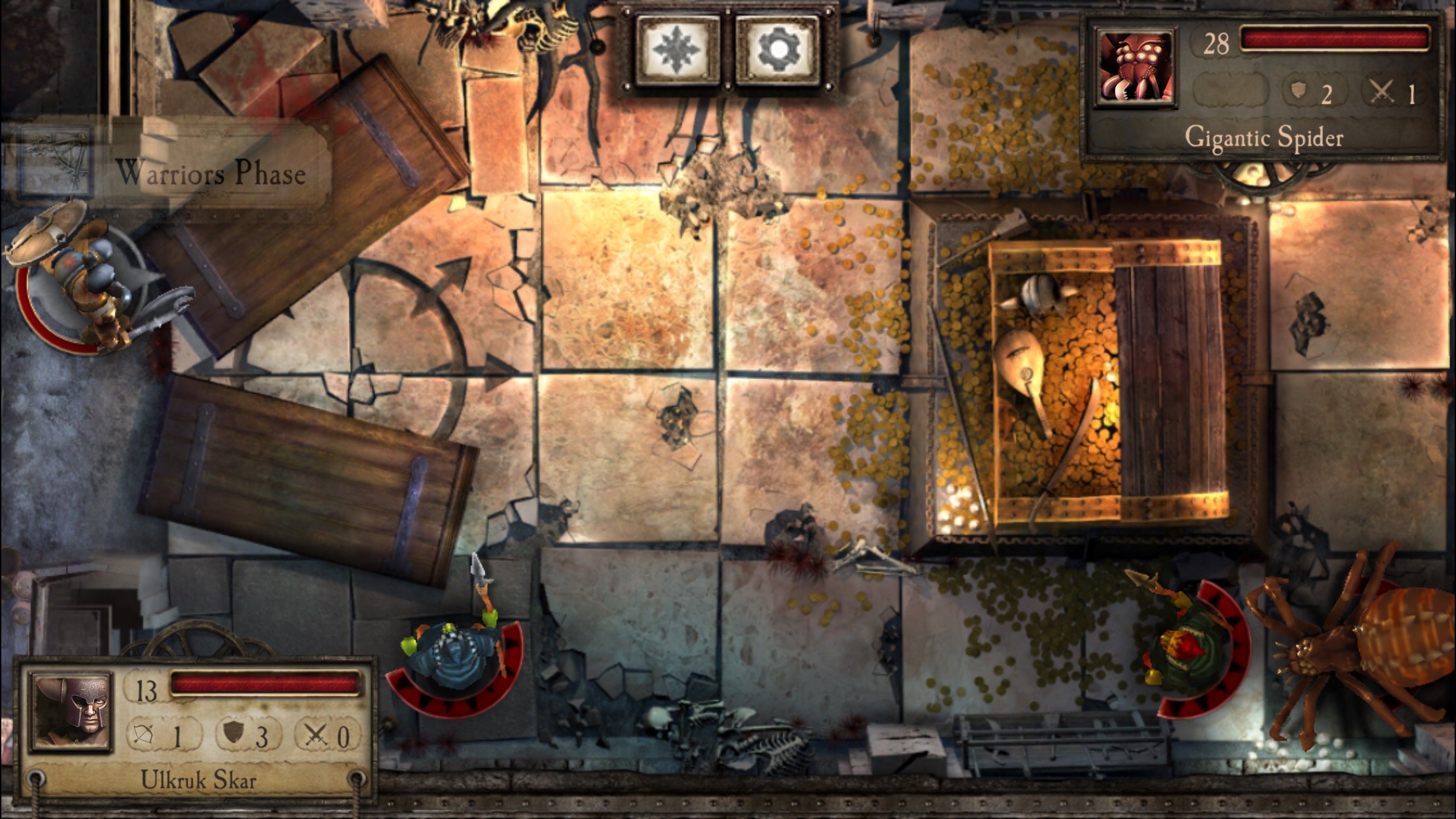 Hello, gentle readers, and welcome to the RPG Reload, the weekly feature where even our finest apparel reeks of goblin blood. In each installment, we take a look at a game from the App Store’s past to see how it stands up in the here and now. It’s a chance to revisit old favorites, reflect on their position in the overall iOS library, or simply to take a deeper dive than our reviews typically allow for. I try to cover a variety of games in these articles, but if you feel like I’m missing something very important, by all means let me know. You can offer up suggestions in the comments below, and while I can’t promise I’ll get to them soon, they will be added to the master list for future consideration.
Hello, gentle readers, and welcome to the RPG Reload, the weekly feature where even our finest apparel reeks of goblin blood. In each installment, we take a look at a game from the App Store’s past to see how it stands up in the here and now. It’s a chance to revisit old favorites, reflect on their position in the overall iOS library, or simply to take a deeper dive than our reviews typically allow for. I try to cover a variety of games in these articles, but if you feel like I’m missing something very important, by all means let me know. You can offer up suggestions in the comments below, and while I can’t promise I’ll get to them soon, they will be added to the master list for future consideration.
It’s been a long while since we last did an RPG Reload File, with the last entry back in April of this year. With most of the big names on iOS already covered either in an RPG Reload or a review written by this very author, it became relatively difficult to find new ground to cover. That being said, there were and are still a few big names that I haven’t gotten around to yet. Today, I want to take care of one of the bigger ones. For at least a few of our readers, Warhammer Quest ($2.99) was just about all of the RPG they needed for months on end. It was the penultimate release from acclaimed TRPG developer Rodeo Games, and in the opinions of many, their best game. One of those grand situations where a license is matched up almost perfectly with a developer, Warhammer Quest stands as both an enjoyable video game adaptation of a classic board game and a good follow-up to the Hunters series of TRPGs.
I’ve already gone into the history of the game’s developer, Rodeo Games, in the RPG Reload File on Hunters. The short version is that the Guildford-based team was founded by four members who had previously worked on games for Codemasters, Sony, Criterion, and others. They felt that the mobile market was a nice place for a small team like theirs to break into, and decided to make strategy games because those were the sorts of games they liked to play. Their first release was Hunters, a fairly straight-forward take on the genre that nevertheless earned the fledgling developer a lot of fans. Rodeo followed up that game’s February 2011 release with a more fleshed-out sequel in early 2012. That game earned acclaim from no less than the legendary Julian Gollop, the creator of games like Rebelstar and X-COM. Clearly, Rodeo Games was on to something.
Getting compliments from one of the founding fathers of the video game genre you’re working in would probably be flattering enough for anyone, but Gollop’s eye wasn’t the only that Hunters had caught. While flying out to the annual E3 show in 2011, two of Rodeo’s founders struck up a conversation with the gentleman who took the unoccupied seat in their row. When they mentioned who they were and what game they had developed, their fellow passenger took out his own phone and showed them the game’s icon sitting on his home screen. It turns out that he was a fan of their game. That man was Andy Jones, one of the main game designers from Games Workshop. Besides helping to design many of their board games, Jones was also the company’s director of licensing. Talk about serendipity.
One of the many games Jones designed at Games Workshop was Warhammer Quest, a juiced-up successor to the popular HeroQuest tabletop RPG created by Games Workshop for Milton Bradley. Its particular brand of turn-based strategy that sees players sending a small party of characters through smaller grid-based rooms made it a good fit for a Hunters-style video game conversion. The game’s modular mission design and expansions also made a lot of sense for a mobile game. The game could be enjoyed one mission at a time or in longer sessions as the player saw fit, and should Rodeo want to add on to the game later, there was certainly precedence for players paying to do just that with the board game.
Warhammer Quest finally released on May 29, 2013. It was only a year and change after the release of Hunters 2, but the game managed to look, sound, and feel like Rodeo’s finest yet. The response to the game was generally positive from both players and critics, with the bulk of the complaints resting on the overall familiarity of the game for Hunters veterans, along with having certain characters only accessible via IAPs. The game received numerous expansions with new locations, quests, and characters in the year following its release. The standard version of the game feels complete on its own, but if you’re willing to spend a little more, you can continue your adventures for quite a while. Which is, if nothing else, another way the game is accurate to its source.
Being a reasonably faithful translation of a tactical board game, Warhammer Quest falls between the lines of a few different genre descriptors in video gaming. It is at its core an RPG, featuring a progression system wherein your heroes increase their stats after accumulating enough experience points or equip new pieces of gear. It’s sort of a dungeon crawl, albeit of the turn-based, top-down variety that largely fell out of popularity after the arrival of Diablo. The combat system mostly resembles a TRPG, with each side moving their units and attacking on each turn until one side is wiped out. Then there are some pen-and-paper style random encounters that pop up from time to time. In video RPG terms, random encounters are usually just battles that pop up out of nowhere. Here, however, they take the form of short events that may benefit or penalize you in a number of ways.
While the game does feature towns and an overworld map, these are essentially menus. Mind you, they’re menus where you can get randomly assaulted, break your arm, and lose half of your gold as you flick between the locations. But menus nonetheless. The bulk of the game is spent in the various dungeons that scatter the lands. You’ll typically pick up a quest from town that will open up a location for you to explore. There are also some side-dungeons that don’t move the plot forward but do provide some kicks off the beaten path. Either way, you pick the dungeon you want, head in, and start digging around. Dungeons are broken up into smaller areas, and when you reach the edge of the area, the next one will appear. Usually, but not always, this brings out some enemies for you to dispatch.
The base game gives you the classic HeroQuest party, more or less. You get a beefy human warrior, a slightly less beefy dwarven warrior, a not-beefy-at-all elven ranger, and a tofu human wizard. Each of them has some exclusive equipment and abilities, and you’ll need to learn which character is best for each situation if you want to survive the more difficult maps. Do you need someone who can dish out and take heavy damage? Human warrior’s your guy. Want to pick off enemies from a distance and have some magic points in reserve? Wizard will be of great use. Or how about the same situation, minus the magic points? Well, the ranger can try. She’ll probably miss, though. Sorry.
Honestly speaking, your party members don’t really have a lot of actions at their disposal. Not at the start, and the situation doesn’t improve terribly as you go, either. Instead, the gameplay variety comes from the parade of nasty monsters that you need to defeat. Obviously, the ideal scenario is to have the player gain lots of interesting tools to take on lots of new situations, but in the absence of one of those two qualities, the other can suffice if done well enough. Still, although Warhammer Quest offers a lot of interesting battle scenarios, it can start to feel monotonous. It’s a particular concern if you’re on anything less than the highest difficulty setting. This was also an issue with the two Hunters games, so it’s not surprising to see it carry over here. The best remedy is to avoid shotgunning the game. Take it a quest or two at a time and you’ll have a much better go of it.
It also doesn’t help that movement can sometimes feel as slow as molasses in the winter. There’s a fast-forward button you can hit on enemy turns, and I have no earthly idea why that speed wouldn’t be the default. Between your party and the enemy, you’re going to be watching a lot of animals, monsters, and humanoids slowly lumbering across the field and poking at each other. The game adheres to its roots outside of battles, as well. Each character must be individually moved, and when everyone has moved their designated spaces, you have to end the turn manually before they can go again. It’s probably worth mentioning here that in its original form, Warhammer Quest is a multiplayer game that is enjoyed as much as a social activity as it is as a tactical challenge. The video game version is single-player, putting everything in the player’s hands. That’s part of why some people find it tedious, I think. It technically wasn’t meant to be played this way.
Generally speaking, I don’t have the issue with the game’s many IAPs that a lot of players have. Perhaps it’s because I’m familiar with the original board game and its equally numerous add-ons. There is one part of the IAP criticisms I can get fully on-board with, however. The game allows players to buy gold in exchange for real money. Which, hey, I’m usually fine with as well. If someone wants to buy their way to the end of a single-player game more quickly, who am I to say they can’t? It’s not like there’s a paywall here. You won’t be swimming in gold, but gold shouldn’t ever be the cause of any real hold-ups in moving through the game. The problem in this game is that there are those pesky random events. You can lose a lot of gold just by getting a bad roll behind the curtains, and that applies just as well to the gold you’ve purchased as it does the gold you’ve earned. That doesn’t feel right to me, but maybe I’m just old.
If you just ignore all that buying gold nonsense, though, Warhammer Quest is a pretty good time. It could do with being a little faster, but that’s the case for a lot of strategy games. Its once-cutting edge graphics have lost a lot of their shine in the last few years, but it still looks reasonably good outside of a general lack of background variety from dungeon to dungeon. Multiple difficulty settings means this one is good for at least one playthrough, though I don’t know that I would want to play it more than a few times in its entirety. With plenty of expansion content, you could probably just pick up a couple new characters, one of the new areas, and just pretend it’s a new game. Provided you haven’t already played through all of that content, anyway.
Unfortunately, the game that Rodeo followed this up with didn’t perform as well as hoped, and the developer ended up going into maintenance mode. I wasn’t sure if they were going to update their older games or not, but the remaining staff came through and Warhammer Quest will live on for the foreseeable future. Some of the Rodeo Games developers formed a new company called Perchang that created a sequel to this game, but in spite of some nice improvements, I feel like the first game is a lot stronger all-around. Let’s hope the original sticks around for a long time to come, and the sequel can realize its potential by fixing some of its issues. We don’t get very many games like this one on mobile anymore, so we have to appreciate the ones that do come around, I think.
That’s my take on Warhammer Quest. What do you all think? You know the business, friends. Share your thoughts in the comments below or pop in on the Official RPG Reload Club thread in the forums. We’re on the last week of our RPG Reload Play-Along of Final Fantasy Tactics, so if you’re playing that, it’s time to mop up before our next big playthrough. That’ll be coming up next week. Thanks for reading, and have a nice weekend!
Next Week’s Reload: The December/January RPG Reload Play-Along
We pride ourselves on delivering quality, long-form articles like this one instead of the SEO-driven click bait that is slowly taking over the internet. Unfortunately, articles like these rarely generate the traffic (and as a result, the ad revenue) of listicles, cheat guides, and other junk.
Please help us continue producing content like this by supporting TouchArcade on Patreon, doing your Amazon shopping by first visiting toucharcade.com/amazon, and/or making one-time contributions via PayPal.
